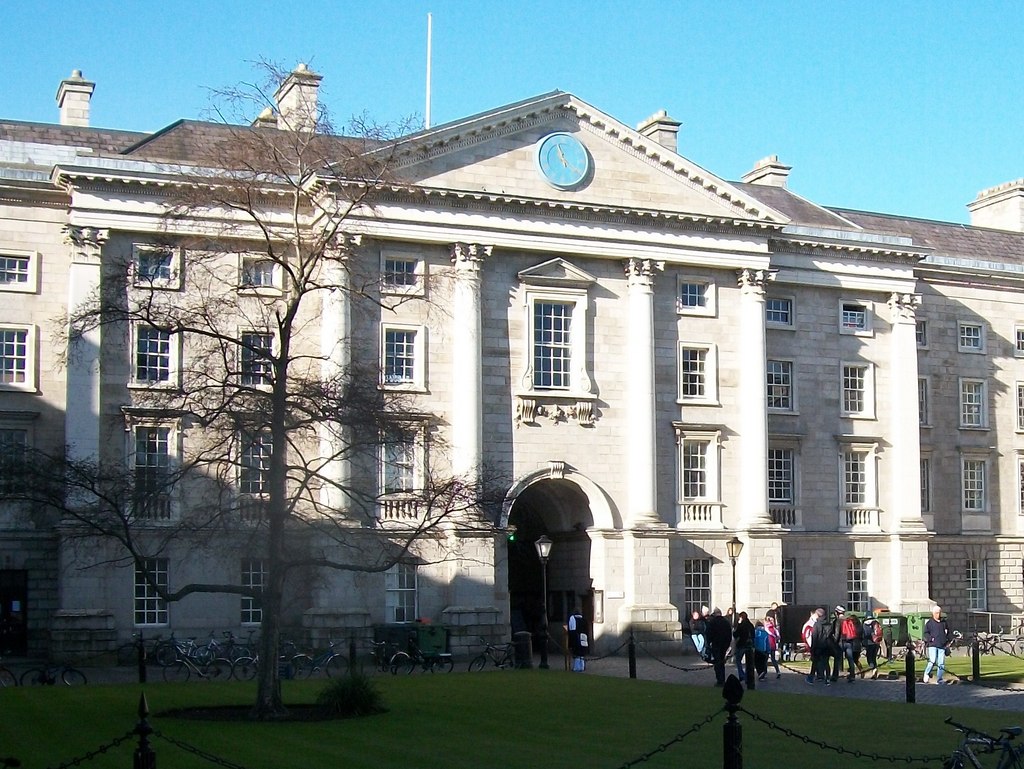College has officially condemned the invasion of Ukraine by the Russian Federation and pledged their support to those affected.
In a statement issued on February 27, College said that they stand “in solidarity with the Ukrainian people at this most difficult time”, and urged that “a peaceful resolution to the conflict is needed” now.
College also stated they are currently offering support to any students, staff or other members of the Trinity community affected by the invasion.
According to the statement, a team led by the Vice President for Global Engagement, Emma Stokes has already spoken to students impacted by the crisis and plans to provide further support in the future.
It noted that as a “University of Sanctuary” and “active member of the Scholars at Risk network”, they are exploring ways to provide “practical assistance” in this crisis.
Provost Linda Doyle added on Twitter that she is “utterly appalled” at the invasion, saying “this brutal invasion is destroying the lives of so many innocent people”.
Since the Russian Federation launched their large-scale invasion of Ukraine on Thursday, Trinity students have been active in protests across the Dublin region.
On Thursday, the Eastern European Society (EES) organised a protest outside the Dáil where students stood in solidarity with Ukrainian citizens. On Friday, students joined the Russian Society and Trinity College Dublin Students’ Union (TCDSDU) in protest outside the Russian Embassy in Rathmines to “show solidarity with Ukrainian citizens and protest against WAR!”.
Speaking to Trinity News, chair of EES Ana Stinca said the society is focused on “the welfare of our students from Eastern Europe who are affected directly or indirectly by the war”.
When asked what further action she thinks College could do, she said that faculty should first focus on “helping our Ukrainian students whose friends and family are back home”, as well as supporting students from other Eastern European countries affected by the conflict.
Stinca added that she would like to see College “coordinate some humanitarian help for refugees in Ireland and/or Eastern Europe” and pointed out the multiple collection points for humanitarian help around Dublin, saying that it would be “amazing to organise students to help with as little as possible”.
Stincia believes that College has a duty “to disclose its investment papers for students to check if there is any sponsorship of Russian military or businesses”.
EEC’s protest organiser Marius Marsejnii, said that he believes “just condemning the attacks is not enough”, and would like to see College take more direct action soon.
“Trinity should cut ties with Russian sponsors if the College has any. I also believe it needs to be vocal about the need to expel the Russian ambassador.”
Marsejnii noted the responsibility that College has in both supporting its own students and trying to influence change on a national level, saying: “The College has to realise that its position as the best in the country carries a weight when it comes to certain things that can influence policy and government.”
“Trinity has to use its reputation to help Ukraine”: he concluded.
EES are planning another protest for this Thursday, March 3 outside the Russian Embassy in Rathmines.






